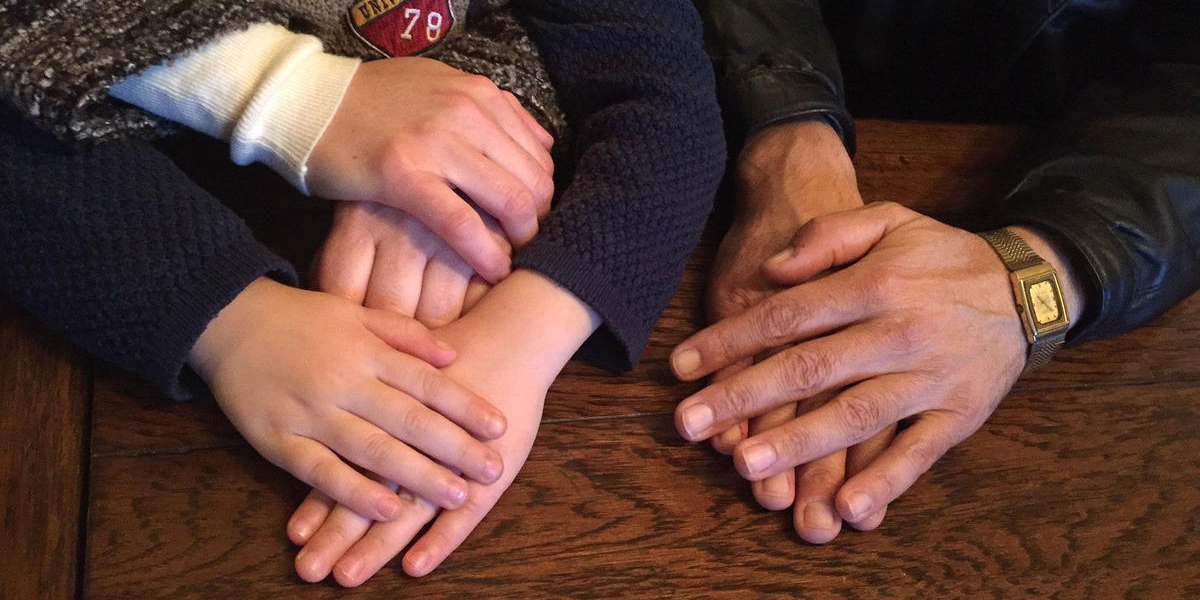Syrian Refugee Family Arrives, Despite Georgia’s Resistance

Elly Yu / WABE
After the terrorist attacks in Paris, some states, including Georgia, have tried to block Syrian refugees from resettling in their cities. But in spite of Gov. Nathan Deal’s stance, one family from Syria arrived in Georgia last week.
Mohammad, Ebtesam and their young son became the first to arrive in the state since Gov. Deal’s executive order trying to stop Syrian refugees from coming into the state. They asked for only their first names be used for security reasons.
At a host family’s home in the Atlanta area, four-year-old Hasan seemed to fit right in with. He played videogames with the host family’s kids on their smartphones.
He’s the only child of Mohammad and Ebtesam. They said he’s been happy in his short time in Georgia. For most his young life, Hasan has been escaping war in Syria.
Speaking through an interpreter, Mohammad said his whole family became targets of the regime. He and his family are from the city of Daraa, where a group of teenagers in 2011 was arrested and tortured for writing anti-government graffiti on a wall. The event sparked protests in Syria, which turned into the current civil war.
Mohammad said he was accused of being associated with those teenagers.
“I was subjected to a lot of security check points and humiliations. Then they attacked Daraa. And the attack was very scary. Lots of firing,” he said. “I was afraid for my wife and my child, my only child.”
His wife, Ebtesam, agrees Syria became unbearable for them to live in. She said she worried about her son.
“I couldn’t bear anything bad to happen to him, like the killing that we were seeing,” she said. They decided to flee for Jordan in 2012, where they have been living before coming to Georgia.
Between them, they said they’ve lost four close family members, and many friends and neighbors.
Ebtesam cried as she thought of her sister. Mohammad explained that her sister had several kids, the youngest one just a toddler – when she was shot by a sniper.
“Those of us here in America are afraid of the unknown. For them, it’s known. We’re afraid of things that might happen. They’re fleeing things that did happen,” said Joshua Sieweke, Atlanta director for World Relief, the agency that’s helping the family resettle.
Mohammad says it took more than two and half years, six interviews – four with U.S., two with the United Nations – to come to Georgia through the refugee application process.
Because of security concerns, Gov. Deal in November signed an executive order directing all state agencies to stop helping Syrian refugees. Deal has said he’s concerned with the federal government’s vetting process, and wants more information from the federal government about who resettles in the state.
“When you have a majority of the American public having grave concerns about a specific group of refugees, the federal government owes it to the people of this country and to the people of Georgia to give us more assurances than they have given us to this point,” Deal said at a press conference.
Georgia’s Department of Human Services, which processes benefit applications, told its employees in a memorandum not to process any applications for Syrian refugees because of the governor’s order. The U.S. Department of Agriculture, in response, told the state it must process food stamp applications for anyone who applies to comply with federal law.
Mohammad and Ebtesam are still waiting to see if their benefit applications will be processed for food stamps and Medicaid, according to Sieweke, a process, he says, which usually happens within a day. It’s been more than a week since the family has applied.
To fill the gap, Johnson Ferry Baptist Church in Marietta is helping the family resettle. Bryant Wright, senior pastor of the church and former president of the Southern Baptist Convention, said he understands the government’s role in providing security, but disagreed with Gov. Deal’s stance.
“The church’s role and the calling of the Christian is to reach out with love for our neighbor and our neighbor includes everyone, and especially those in need,” Wright said. “And I can’t think of anyone that is more in need than Syrian refugees who’ve often lost everything.”
He said the church is helping Mohammad and Ebstesam with food and rent, and will help future Syrian refugees in Georgia.
For Mohammad and Ebtesam, they say they’re enjoying being Georgia so far, and want to live normal lives.
“We want our freedom. We want to live a full life. I want my son to have a good education and health,” Ebtesam said. “I hope our entire life will change for the better.”
Mohammad says he wants to find a job, support his family and raise Hasan in peace.
9(MDAxODM0MDY4MDEyMTY4NDA3MzI3YjkzMw004))





